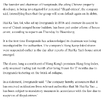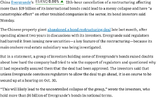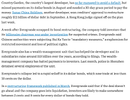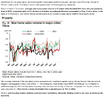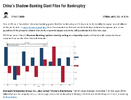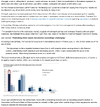Dona Ferentes
BHINNEKATUNGGAL IKA
- Joined
- 11 January 2016
- Posts
- 17,233
- Reactions
- 23,534
from SCMP
China Evergrande suffers new blow as curbs on offshore bond sales raise survival alarm, hobble US$20 billion debt workout
- Troubled developer did not meet requirements to sell new offshore debt, saying its onshore unit Hengda is being investigated by authorities
- The firm earlier cancelled creditor meetings scheduled for this week, citing weak home sales and the need to reassess restructuring terms

